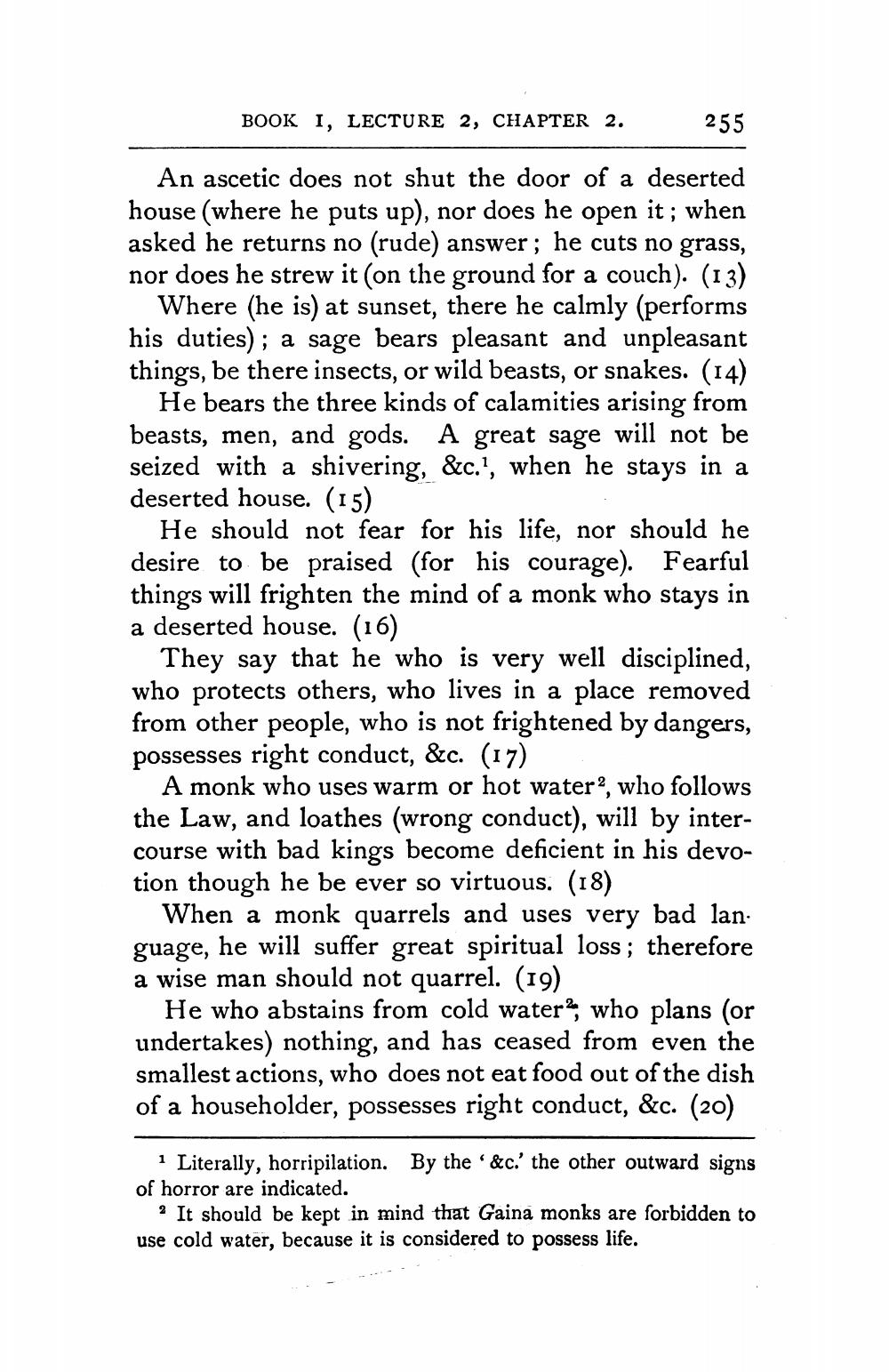________________
BOOK I, LECTURE 2, CHAPTER 2.
255
An ascetic does not shut the door of a deserted house (where he puts up), nor does he open it; when asked he returns no (rude) answer; he cuts no grass, nor does he strew it (on the ground for a couch). (13)
Where (he is) at sunset, there he calmly (performs his duties); a sage bears pleasant and unpleasant things, be there insects, or wild beasts, or snakes. (14)
He bears the three kinds of calamities arising from beasts, men, and gods. A great sage will not be seized with a shivering, &c.?, when he stays in a deserted house. (15)
He should not fear for his life, nor should he desire to be praised (for his courage). Fearful things will frighten the mind of a monk who stays in a deserted house. (16)
They say that he who is very well disciplined, who protects others, who lives in a place removed from other people, who is not frightened by dangers, possesses right conduct, &c. (17)
A monk who uses warm or hot water”, who follows the Law, and loathes (wrong conduct), will by intercourse with bad kings become deficient in his devotion though he be ever so virtuous. (18)
When a monk quarrels and uses very bad lan. guage, he will suffer great spiritual loss; therefore a wise man should not quarrel. (19)
He who abstains from cold water, who plans (or undertakes) nothing, and has ceased from even the smallest actions, who does not eat food out of the dish of a householder, possesses right conduct, &c. (20)
1 Literally, horripilation. By the '&c.' the other outward signs of horror are indicated.
? It should be kept in mind that Gaina monks are forbidden to use cold water, because it is considered to possess life.




